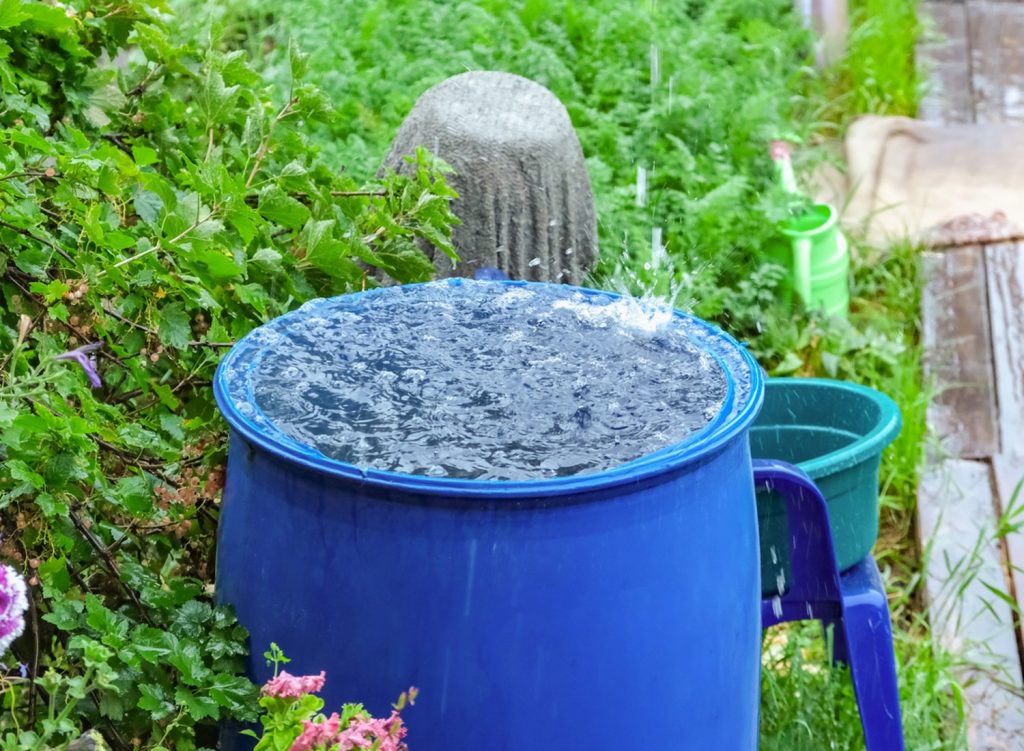5 Reasons Every Home Needs a Water Collection System

In an era where environmental consciousness is no longer a choice but a responsibility, embracing sustainable practices at home has become paramount. Among the myriad eco-friendly initiatives, one stands out for its simplicity and profound impact: installing a water collection system. Harvesting rainwater, an ancient practice revitalized with modern technology offers many benefits for homeowners.
From providing a sustainable water source to substantial cost savings, its positive environmental impact extends far beyond the confines of individual households. In this blog, we delve into the five compelling reasons why every home should embrace the invaluable asset of a water collection system, transcending mere utility to become a beacon of eco-conscious living.
Why Your Home Needs a Water Collection System
Harnessing rainwater through a water collection system does more than just conserve a precious natural resource—it actively slashes your dependence on municipal water sources, directly translating to reduced utility bills. With the installation of a utility pump, you can efficiently channel this stored water for various uses, such as irrigating your garden, washing your car, or even for household cleaning purposes, maximizing the utility of every drop.
1. Sustainable Water Source
In many parts of the world, water scarcity is a pressing issue. By installing a water collection system, homeowners can contribute to alleviating this problem. Rainwater is a sustainable and renewable source you can harvest for various non-potable uses, such as watering plants, washing cars, or flushing toilets. By reducing reliance on municipal water supplies for these activities, households can significantly preserve local water resources.
An alternative water source can also be crucial during droughts or emergencies. A water collection system acts as a reliable backup, ensuring access to water even when traditional sources are scarce. This self-sufficiency can prove invaluable in times of need, providing security and independence.
2. Cost Savings
Beyond the environmental benefits, installing a water collection system can lead to significant cost savings for homeowners. Municipal water comes at a price, and as usage increases, so does the water bill. By using harvested rainwater for activities like watering the garden or washing clothes, households can reduce their water consumption from the municipal supply, translating to lower monthly bills.
Moreover, many regions offer incentives or rebates for homeowners who install water collection systems. These financial perks can offset the initial investment, making it a cost-effective and environmentally conscious decision. Over time, the savings on water bills and potential rebates can contribute to a substantial return on investment, making the water collection system a smart financial choice.
3. Environmental Impact
Traditional water sources require extensive energy for treatment and distribution. By reducing the demand for municipal water, a water collection system helps lower the overall energy consumption associated with water supply. This, in turn, decreases the carbon footprint of households and contributes to a more sustainable and eco-friendly lifestyle.
Furthermore, rainwater harvesting minimizes the risk of stormwater runoff, which can carry pollutants and contaminants into local water bodies. When rainwater runs off paved surfaces, it can pick up pollutants like oil, fertilizers, and chemicals, negatively impacting the environment. A water collection system helps mitigate these environmental risks by capturing rainwater before it has a chance to become contaminated, ensuring a cleaner and healthier local ecosystem.
4. Landscape and Garden Benefits
Rainwater is naturally soft and free from the chemicals typically found in municipal water supplies, such as chlorine and fluoride. This makes it an ideal choice for watering plants, as it promotes healthier growth and development. Gardens and landscapes thrive when irrigated with rainwater, as it provides essential nutrients without the potentially harmful additives found in tap water.
Additionally, using harvested rainwater for landscaping purposes reduces the strain on municipal water supplies during dry seasons. This benefits the homeowner and supports the community by contributing to overall water conservation efforts. A water collection system thus becomes a green investment that pays off in the flourishing beauty of your garden while contributing to the broader environmental well-being.
5. Community and Educational Impact
Installing a water collection system sets a positive example for the community. As neighbors observe the benefits, they may be inspired to follow suit, creating a ripple effect of sustainable practices. This collective effort can lead to a more environmentally conscious neighborhood that collaborates to address local water challenges and reduce its ecological footprint.
Moreover, a water collection system offers educational opportunities for adults and children. It opens the door to discussions about water conservation, environmental responsibility, and the importance of sustainable living. Families can use the system as a practical tool to teach future generations about the value of natural resources and the role individuals play in preserving them.
Conclusion
A water collection system is more than just a practical addition to a home; it’s a commitment to sustainability, cost-effectiveness, and community well-being. By harnessing the power of rainwater, homeowners can positively impact their wallets and the environment, contributing to a more resilient and eco-friendly future for generations to come.
